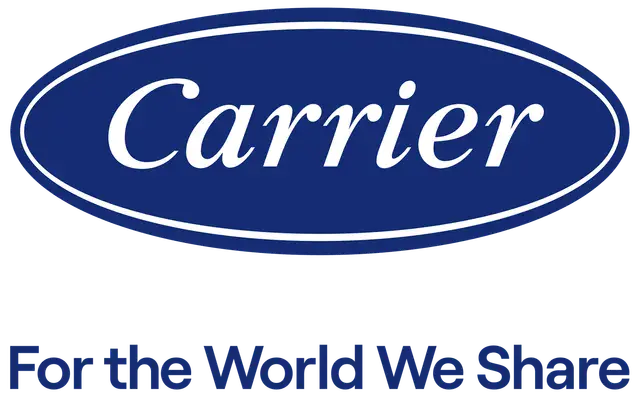Understanding Tankless Water Heater Technology in Helena, AL
When you’re considering upgrading your home’s water heating system, tankless water heaters represent a significant advancement in efficiency and convenience. Unlike traditional tank-style water heaters that continuously heat and store 40-80 gallons of water, tankless systems heat water on demand as it flows through the unit. This fundamental difference in operation means you’ll never run out of hot water during those busy morning routines or when hosting guests at your Helena home.
The technology behind tankless water heaters involves powerful heat exchangers that rapidly raise water temperature as it passes through copper or stainless steel coils. When you turn on a hot water tap, cold water travels through the unit where either a gas burner or electrical element heats it to your desired temperature. This process happens almost instantaneously, delivering hot water within seconds. At Stegall, we’ve installed countless tankless systems throughout Helena and the surrounding areas, and our technicians understand the specific water quality and pressure conditions that affect system performance in this region.
Energy Efficiency and Cost Savings Analysis
The energy efficiency of tankless water heaters typically ranges from 82% to 98%, depending on whether you choose a gas or electric model. This represents a substantial improvement over traditional tank heaters, which typically operate at 60-80% efficiency. The absence of standby heat loss – the energy wasted keeping stored water hot 24/7 – accounts for much of this efficiency gain. For Helena homeowners, this translates to potential energy savings of 24-34% on water heating costs, according to Department of Energy estimates.
Beyond the monthly utility savings, tankless water heaters qualify for various energy efficiency rebates and tax credits. The federal government currently offers tax credits for qualifying ENERGY STAR certified models, while Alabama Power and other utility companies periodically offer rebates for electric tankless installations. We help our customers navigate these incentive programs to maximize their return on investment. Additionally, the longer lifespan of tankless units – typically 20-25 years compared to 10-15 years for tank heaters – means the total cost of ownership often favors tankless technology despite higher upfront costs.
Installation Requirements and Considerations
Installing a tankless water heater requires careful planning and professional expertise. Gas-powered units need adequate ventilation and may require upgrading your home’s gas line to accommodate the higher BTU demands during operation. The existing half-inch gas line serving a traditional water heater often needs replacement with a three-quarter or one-inch line to deliver sufficient fuel for instantaneous heating. Electric tankless heaters typically require dedicated 240-volt circuits and may necessitate electrical panel upgrades to handle the increased amperage load.
Water quality in Helena plays a crucial role in tankless water heater performance and longevity. The area’s moderately hard water, containing dissolved minerals like calcium and magnesium, can accumulate inside the heat exchanger over time. We recommend installing a water softener or scale inhibitor system alongside your tankless heater to prevent mineral buildup and maintain peak efficiency. Our comprehensive installation service includes analyzing your water quality and recommending appropriate treatment solutions. As a company that offers commercial, industrial and residential HVAC, plumbing, and electrical support services 24 hours a day, 7 days a week, we handle every aspect of the installation process, from permits to final inspection.
Sizing Your Tankless Water Heater System
Proper sizing ensures your tankless water heater meets your household’s hot water demands without unnecessary expense. We calculate the required flow rate by adding up the gallons per minute (GPM) used by all fixtures that might operate simultaneously. A typical shower uses 2.5 GPM, while kitchen faucets average 2.2 GPM and bathroom sinks use about 1.5 GPM. For a Helena family of four, peak demand might reach 7-8 GPM when multiple fixtures run concurrently.
Temperature rise – the difference between incoming cold water temperature and desired output temperature – also affects sizing. Helena’s groundwater temperature averages 62°F year-round, so heating water to the standard 120°F requires a 58°F temperature rise. Gas tankless heaters can typically achieve this temperature rise at higher flow rates than electric models, making them popular choices for larger households. We perform detailed load calculations for every installation, considering factors like household size, usage patterns, and future needs to recommend the optimal unit capacity.
Maintenance and Long-Term Performance
Regular maintenance extends the life of your tankless water heater and maintains its efficiency. Annual descaling removes mineral deposits from the heat exchanger, particularly important given Helena’s water conditions. This process involves circulating a mild acidic solution through the unit to dissolve scale buildup. We also inspect and clean the water filter, check gas connections and combustion efficiency, and test safety devices during routine maintenance visits.
Benefits for Helena Homeowners
- Endless hot water supply: Never experience cold showers again, even with back-to-back usage
- Space savings: Wall-mounted units free up valuable floor space in garages, basements, or utility closets
- Reduced water damage risk: No tank means no catastrophic leaks that can flood your home
- Precise temperature control: Digital controls maintain consistent water temperature within one degree
- Lower environmental impact: Reduced energy consumption and longer equipment life minimize environmental footprint
The compact design of tankless water heaters proves especially valuable in Helena’s mix of historic homes and new construction, where mechanical space often comes at a premium. These units mount on walls, inside or outside, freeing up valuable square footage for storage or living space. The elimination of a large storage tank also removes the risk of catastrophic water damage from tank failures, a significant concern for homeowners who’ve experienced or witnessed the devastating effects of a ruptured water heater.
Our experience serving Helena and neighboring communities like Hoover, Vestavia, and Mountain Brook has shown that tankless water heaters deliver exceptional value when properly sized and installed. We’re committed to helping you make an informed decision about whether tankless technology suits your specific needs and circumstances. Contact us to discuss how a tankless water heater can improve your home’s comfort and efficiency while reducing long-term operating costs.


